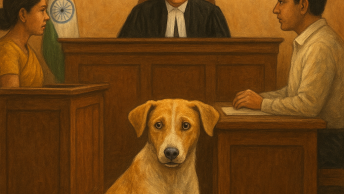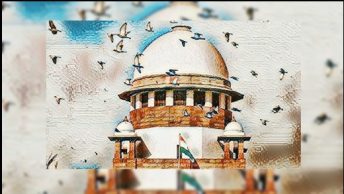Blurb: In this two-part series, Aditya Prasanna Bhattacharya revisits the UCC’s roots in the Constituent Assembly debates and traces its evolution within India’s legal framework. He emphasises the need to move beyond the debate on whether the UCC is a legitimate legal reform or a politically motivated imposition on minorities. Instead, he calls for a more dispassionate approach towards reforming our archaic family laws. Here is the link to the first part of the series.
2. Debate & Adoption by the Constituent Assembly
The Assembly took up draft article 35 on 23 November 1948. Two camps quickly formed with diametrically opposite viewpoints.
2.1. The Opponents of the UCC clause
The first camp felt that the uniform civil code, whenever it came into force, could not be allowed to interfere with the personal law of a religious community (which included marriage, inheritance etc.). Inter alia, this camp urged the Assembly to consider the exceptional situation of the Muslim minority in India, for whom personal law was as much a part of their religion as the observance of other religious rituals. Mohammad Ismail Khan moved an amendment to insert the following proviso, in effect wholly excluding personal law from the scope of the UCC:[1]
“Provided that any group, section or community of people shall not be obliged to give up its own personal law in case it has such a law.”
Naziruddin Ahmed moved a similar, albeit a more targeted amendment. In effect, the statutorily enshrined personal law of a community could be brought within the scope of the UCC, but only if the community consented to the same:[2]
“Provided that the personal law of any community which has been guaranteed by the statue shall not be changed except with the previous approval of the community ascertained in such manner as the Union Legislature may determine by law.”
Mahboob Ali Baig Sahib Bahadur moved an amendment similar to that of Mohammad Ismail Khan:[3]
“Provided that nothing in this article shall affect the personal law of the citizen.”
Pocker Sahib Bahadur also moved a similar amendment:[4]
“Provide that any group, section or community of people shall not be obliged to give up its own personal law in case it has such a law.”
2.2. The Proponents of the UCC clause
The opposite camp consisted of a vast number of members, all of whom felt that the UCC clause should be adopted in its current form. Their views were articulated by KM Munshi, AK Ayyar, and BR Ambedkar.
To counter the argument of Muslim exceptionalism, K.M. Munshi first used the example of advanced Islamic nations such as Turkey and Egypt, where citizens did not have the right to opt out of the common civil law on the ground that it is contrary to their personal law. He then argued that even the enactment of the Muslim Personal Law (Shariat) Application Act, 1937 had involved the forcible imposition of Shariat law on Khoja and Cutchi Muslims, who formerly followed their own personal law. As such, even within the Muslim community, there was precedence for compulsory uniformisation of personal law. Finally, Munshi argued that following independence, religious isolationism could not be permitted to act as a roadblock to national unity.
Next, A.K. Ayyar used the historical example of the British Raj, where areas of law such as criminal and contract law, which were formerly governed by the personal laws of individual communities, had been uniformised. If religious minorities had not objected then, he failed to understand the present objection to the UCC. He also used the examples of European states such as Germany and France, where citizens belong to various ethnicities and religious communities but are all strictly bound by a common law on marriage and succession.
Finally, B.R. Ambedkar closed the debate by echoing Munshi and Ayyar’s views, and also contributing his own rebuttals. He first used the example of the North West Frontier Province, where prior to 1937, even Muslims were governed by Hindu succession law. It took legislative intervention to ensure that Shariat was made applicable to the Muslims in that area. Thus, to argue that historically, all Muslims in India have been governed by Quranic personal law is incorrect. In any case, Ambedkar reminded the members that the draft article did not propose to immediately enact a UCC. It merely shifted the burden onto a future Parliament, which could very well decide that the UCC, if enacted, should be made a voluntary, opt-in framework. It is worth noting that the debate on inserting a clause in the Chapter on Fundamental Rights came after the discussion on inserting a UCC clause in the Chapter on Directive Principles. As such, Dr. Ambedkar was able to dismiss many arguments by stating that a similar discussion had been carried on in the latter context as well. He stated-
“There is nothing which is not religion and if personal law is to be saved, I am sure about it that in social matters we will come to a standstill. I do not think it is possible to accept a position of that sort. There is nothing extraordinary in saying that we ought to strive hereafter to limit the definition of religion in such a manner that we shall not extend beyond beliefs and such rituals as may be connected with ceremonials which are essentially religious.”
In other words, Ambedkar argued for decreasing the scope of religious interference in the daily lives of citizens.
Following this prolific debate, all four amendments which had been tabled were rejected, and the draft article was adopted in its present form. No amendments have been made since then, and article 44 of the Constitution survives in its present form.
Conclusion
If you were unable to correctly answer the exercise for readers at the beginning of this piece or were lightly bemused by the similarity in the sentiment between the two excerpts, do not fret. This only represents the convoluted political and social history of the UCC in India. In trying to determine whether the UCC is a legitimate legal reform project or a politically motivated imposition on religious minorities, we have lost sight of the real goalpost – reforming family law in India – a body of law which is archaic, gender-discriminatory, and based in part on religious scriptures and in part on the colonial conception of the ideal family. If the aim is to realistically engage with how family law needs to change, it is necessary to take a step back from the raised pitch which has come to form an inalienable part of every debate on the UCC, and dispassionately engage with jurists, lawyers, historians, sociologists, economists, and social workers on whether India’s civil code is truly communal, whether this is a problem, and if so, what must be done to fix it.
Endnote
[1] Constituent Assembly Debates, Vol. VII (23 November 1948)
[2] Constituent Assembly Debates, Vol. VII (23 November 1948)
[3] Constituent Assembly Debates, Vol. VII (23 November 1948)
[4] Constituent Assembly Debates, Vol. VII (23 November 1948)
Author Details: Aditya is a Senior Resident Fellow in the Research Director’s Office at the Vidhi Centre for Legal Policy. He obtained a BA LLB (Hons.) from NLSIU Bangalore in 2021, where he was a founder of Law School Policy Review – a leading law and policy blog for law students in India. His areas of interest include constitutional law, regulatory design, and family law. He has academic publications on constitutional law, legislative drafting, and arbitration law. At Vidhi, he has been providing legislative drafting assistance to various Ministries, Departments, and Authorities of the Central Government and various State Governments. He has also worked closely with several High Courts in designing case management systems.
Ed Note: This article has been coordinated by Ishika Garg from the Constitutional Law and Information Collective (CLIC), edited by Sukrut Khandekar and published by Baibhav Mishra from the LAOT Student Editorial Team.







